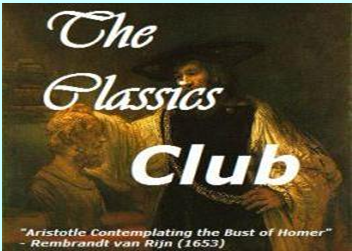John Steinbeck
Penguin paperback
602 pages
East of Eden is John Steinbeck's letter to his two sons, odd as that sounds. Steinbeck wrote his great family saga at a happy point in his life--he was finally married to the woman he loved (his third wife, Elaine). Each morning, as Steinbeck sat down to work on his novel, he warmed up by writing a letter to his editor and friend, Pascal Covici. Those letters were eventually published as Journal of a Novel: The East of Eden Letters.
Steinbeck's sons were quite young when he began writing East of Eden, which was published in 1952. At first I was puzzled over Steinbeck's desire to have his sons absorb this tale of sibling rivalry (based on the Biblical story of Cain and Abel from Genesis). But then I realized that Steinbeck was also telling his own family story--eventually the reader realizes that the narrator is John Steinbeck, and that Samuel Hamilton is Steinbeck's grandfather. So John Steinbeck the novelist incorporates a family saga--his own family story--into the ultimate story of the battle between good and evil.
I haven't finished reading Journal of a Novel yet, but I've read enough to realize that Steinbeck made significant revisions before East of Eden was published. The first pair of rivalrous brothers, Adam and Charles Trask, have a troubled relationship, marked by envy and competition. Adam gives their father a gift (a puppy), and Charles is deeply hurt when their father loves and prizes Adam's gift over the gift that Charles saved for (a knife). This story takes up a significant portion of the novel, but it is really just laying the groundwork for the heart of the story. The sibling rivalry and competition for a father's love gets played out all over again with Adam's sons, Aron and Caleb.
Spoiler alert:
Of course, as the reader knows, Adam may not even be the biological father of his twin sons. That's because his wife, Cathy, a Lilith-like figure of unredeemed evil, slept with Adam's brother on their wedding night, after drugging Adam. Yeah. I know.East of Eden is a completely absorbing novel, one that made me forget about everything else as soon as I sat down to read. I loved the characters: Adam, a wholly good man, perhaps too innocent and naive for this world. Sam Hamilton, the moral core of the novel. Lee, the Chinese servant who adds another level of moral precision to East of Eden. Cathy, the most coldly evil character, rendered in the most realistic and believable way.
The twins, Aron and Caleb, defied my expectations. Aron was too angelic to be really likable, and I ended up identifying with and loving Caleb, who fought the evil in himself. And Abra, the girl both boys loved, was another fully developed, compassionately real, character.
I'll have to add East of Eden to my list of absolute favorite books. It was the ultimate read in so many ways, offering the kind of complexity I love, along with beautiful writing and riveting characters. Completing this novel was satisfying too, because I get to cross another book off of my Classics Club list, and herein ends (belatedly) The Estella Society East of Eden Read-a-long.




5 comments:
East of Eden is one of my favorite novels as well. Your identification of the autobiographical details provides helpful context for the novel.
I plan to reread this next month and look forward to uncovering further layers of meaning in Steinbeck's rich story.
Your post makes me want to reread East of Eden yet again. It's one of my all-time favorites, too. You've also reminded me that I have The East of Eden Letters on my shelf... unread. That needs to change.
@James-Have fun rereading East of Eden...There is always more to uncover with Steinbeck!
@JoAnn-The pleasures of rereading a favorite classic! You already know the book, and know you love it, and a second or third reading just uncovers that much more. And I really am enjoying Steinbeck's intimate voice in the letters to his editor. It gives the reader so much insight into Steinbeck's creative process....
One of these days I have got to make time for this one!
Post a Comment